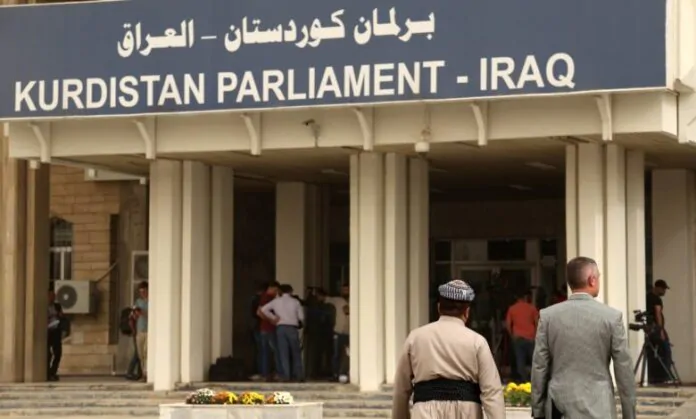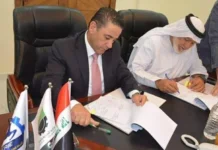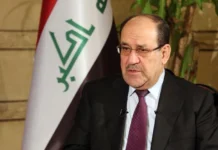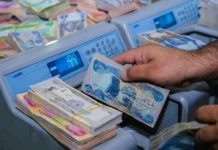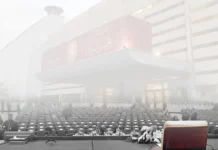Today, Sunday, Kurdish academic and researcher Ali Ibrahim Bakh discussed the difficulties involved in forming the new government in the Kurdistan Region.
According to Bach’s statement to dinaropinions.com, “the parties’ strategies differ according to their positions and interests, so the next phase in the Kurdistan Region will witness intensive negotiations to form the new government.” In general, the ruling parties, such as the Patriotic Union of Kurdistan (PUK) and the Kurdistan Democratic Party (KDP), view remaining in power as a crucial issue and even a “matter of life or death” for them.
The Barty and Yekti’s “clinging” to power is primarily due to their “close ties to the security and military establishments, with the two parties controlling more than 200,000 Peshmerga forces,” according to Bach. Moving away from the government means losing direct control over these forces, whose loyalty is a crucial component of the stability of the parties. This is especially true when it comes to salaries, as these forces’ loyalty could shift to the party that can guarantee them a steady income.
“In addition, both parties rely on a large network of supporters as well as employees in government and party institutions who consider the parties’ continued power to be crucial to their job stability. He continued, “These employees frequently receive their salaries from the parties, which creates popular pressure on them to remain in power and prevent losing this large popular base.”
Obstacles posed by opposition party membership On the other hand, Bach viewed the presence of opposition parties in the government as a “major challenge” that could lead to their “political suicide.” According to his explanation, “the opposition’s entry into power could lead to it losing popular support, as happened with the Gorran Movement, whose seats in the regional parliament decreased from 25 to one seat, and it lost its representation in the 2021 federal elections.” Similar was the situation with the Islamic Union (Yekegarto), whose rise to power led to a decline in its popularity.
“Consequently, it appears that the opposition parties will prefer to maintain their role as the opposition in preparation for the subsequent federal elections in 2025 rather than participating in the current government. According to him, “their awareness of the negative impact that participation may have on their popularity, as well as their desire to maintain their popular base and exploit their position as the opposition to gain future electoral gains,” this decision will, in my opinion, be made in light of these factors.
According to Bach, the most likely scenario for the formation of a government is “an alliance between the Barty and the Yekti with the quota to form a parliamentary majority of approximately 70 seats.” This is based on these data. The Barty is expected to bear the greatest political costs because it may be forced to make concessions to the Patriotic Union, such as giving up some ministerial positions and possibly the region’s presidency. However, this alliance will make it possible to form a consensus government. The Patriotic Union will gain a stronger position within the new government if Qubad Talabani is appointed to this position. Due to the deep differences in visions, the accumulated political and administrative rift between the two major parties, and the extent to which the Patriotic Union of Kurdistan is affected by the populist discourse it has adopted, the formation of a government may take a year or more—similar to what has occurred in federal Iraq after each election since 2010.
The parliamentary elections scheduled for October 2025, in which the majority of parties have adopted slogans opposing the Barzanis and calling for getting rid of their dominance over the government, are one of the variables that will influence the parties’ decision to participate. Pavel Talabani stands out in this context because he criticized the Barzanis’ control over the region and described the government as “imposed and tyrannical.” It takes time to abandon these slogans, and the parties’ chances in the upcoming elections will be impacted by their decision to join the government, particularly if Mr. Masrour Barzani remains Prime Minister, as Bach pointed out.
Bach came to the following conclusion: “It is not possible to imagine an easy scene for forming the next government in the Kurdistan Region with the historical and current rifts that affect the form and quality of the relationship between the Barty on the one hand and the other parties on the other.” The tense relationships that exist between the Kurdistan Democratic Party and other parties are not a recent occurrence; rather, they are the result of ongoing political and administrative disagreements as well as historical accumulations, which add complexity to the process of forming a government. The region faces problems with its economy and security that necessitate the establishment of a powerful government that is capable of resolving these pressing issues. This puts more pressure on the parties to come to an agreement. Because some nations may attempt to influence the formation of the government in a manner that serves their interests, the political scene in Kurdistan is made more complicated by the influence of regional and international powers. As a result of the foregoing, forming the next government in the Kurdistan Region will be a complicated process that could take a long time. It will also take a lot of effort from all parties to overcome disagreements and bring political stability to the region.
